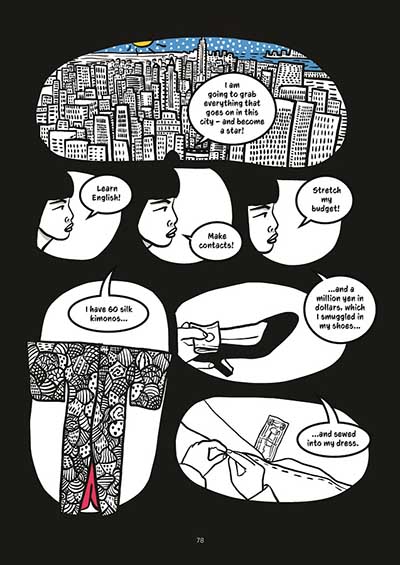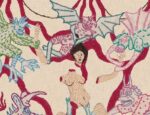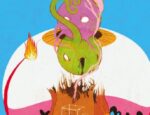Japanese contemporary artist Yayoi Kusama has been the subject of a spotlight in comics form before. Back in 2021 Broken Frontier’s Jenny Robins reviewed Elisa Macellari’s Kusama: The Graphic Novel, published by Laurence King Publishing. SelfMadeHero are the latest publisher to bring this pivotal figure in the arts world to the medium in Simon Elliott’s Kusama: Polka Dot Queen.
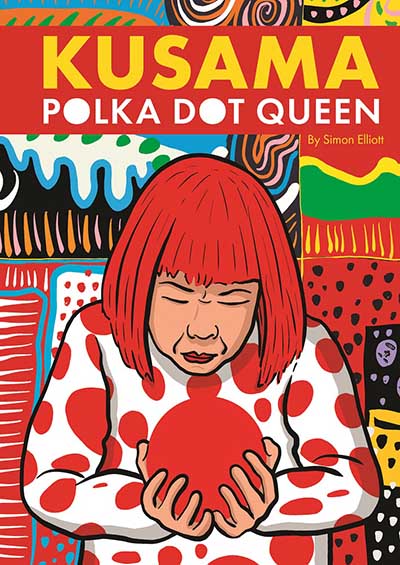
Biographies like this have a fine line to tread in terms of projected audience. If they aim squarely at aficionados of the creators concerned they risk alienating an audience new to their subject’s work. But, conversely, pitching themselves entirely at the uninitiated can present a too superficial exploration of the artist’s world, practice and experiences. Elliott has to juggle these challenging factors in a book that has just 140-ish pages to capture its subject’s colourful life. And, of course, to do so while also using graphic narrative to bring something fresh to that story.
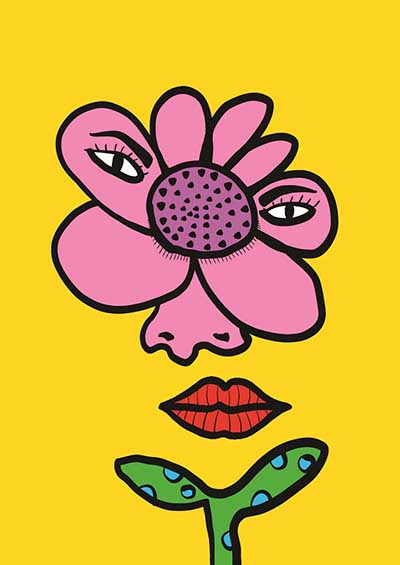
Elliott initially traces Kusama’s life from a difficult childhood in Japan living with an abusive mother who, in one key sequence, sends her to spy on her father with another woman, through to her early artistic endeavours. Polka dots, or infinity nets in her parlance, become a signature part of her art and by the 1960s she has moved to New York, becoming part of the pop art movement. Her art “happenings” feeling very ahead of their time at this point.
In the 1970s Kusama fades from the limelight and drifts slowly into apparent obscurity before a significant revival of interest in her work in the ‘80s and ‘90s leads to her become the bestselling female artist ever. Throughout this, however, her struggles with her mental health greatly impact on her life.
Where Kusama: Polka Dot Queen is so effective in its reimagining of its subject’s life on the comics page is in Elliott’s use of colour and freeform page structure to thematically reflect both periods of Kusama’s practice and emotional aspects of her life. The polka dot hallucinatory scenes of her childhood, for example, or a double-page spread echoing the concept of infinity. Bleaker moments where her mental health is deteriorating are mostly stripped of colour while the irregular panel structures root us in a sense of developing creativity; imagination and expressionism appropriately pushing conformity and rigidity to the side.
There are, it has to be said, occasional points where Elliott falls into the trap of textual information dumps that tell rather than show. But, for the main part, Kusama: Polka Dot Queen works as an intriguing entry point to its subject and an imaginatively visual summary of her career for those more versed in her art.
Simon Elliott (W/A) • SelfMadeHero, £14.99
Buy online from Gosh! Comics here
Review by Andy Oliver







